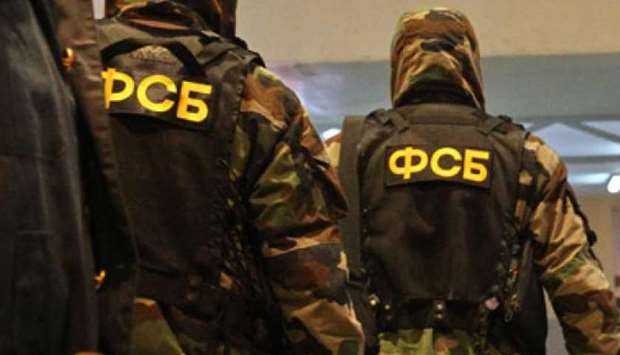Russia's FSB security service said Monday that it had captured a gang planning major attacks on Moscow transport networks and shopping centres, directed by members of the Islamic State jihadist group from Syria.
Security officers detained members of the group outside Moscow as they plotted ‘a series of terrorist attacks in crowded public places including on public transport and in major shopping centres in Moscow using suicide bombers and powerful explosive devices,’ the FSB said.
It said it had determined that the attacks were being organised by IS warlords and emissaries who are in Syria, which it identified as T.M. Nazarov and A.M. Shirindzhonov.
Media outlets in Tajikistan reported this month that a man named Todzhiddin Nazarov, also known as Abu Osama Noraka, had appeared in IS video statements from Syria posted on pro-jihadist sites.
The FSB said officers raided a bomb-making labouratory outside Moscow and captured the group's coordinator, an IS emissary in Russia, as well as an explosives expert and two potential suicide bombers, it said.
It said that four people were captured, three from Central Asian states and one a Russian citizen.
Russia's Rossiya 24 state television showed FSB footage of the raid on a house in which plainclothes officers are seen pinning two young men wearing black rucksacks to the floor and handcuffing them. It also showed what it said was equipment used to mix chemicals.
Russia regularly announces that it has foiled major terrorist attacks, and recently has emphasised the threat from former Soviet countries in Central Asia, where large numbers of the Muslim-majority populations have gone to fight alongside IS.
The FSB said in July that it had detained seven nationals from Central Asia who were ‘preparing terrorist attacks’ in Saint Petersburg, where 15 were killed in a metro bombing in April.
The alleged perpetrator who died in that attack was born in Kyrgyzstan and later acquired Russian citizenship.
The bombing was claimed by a little-known group, the Imam Shamil Battalion, which experts say is linked to Al-Qaeda.

